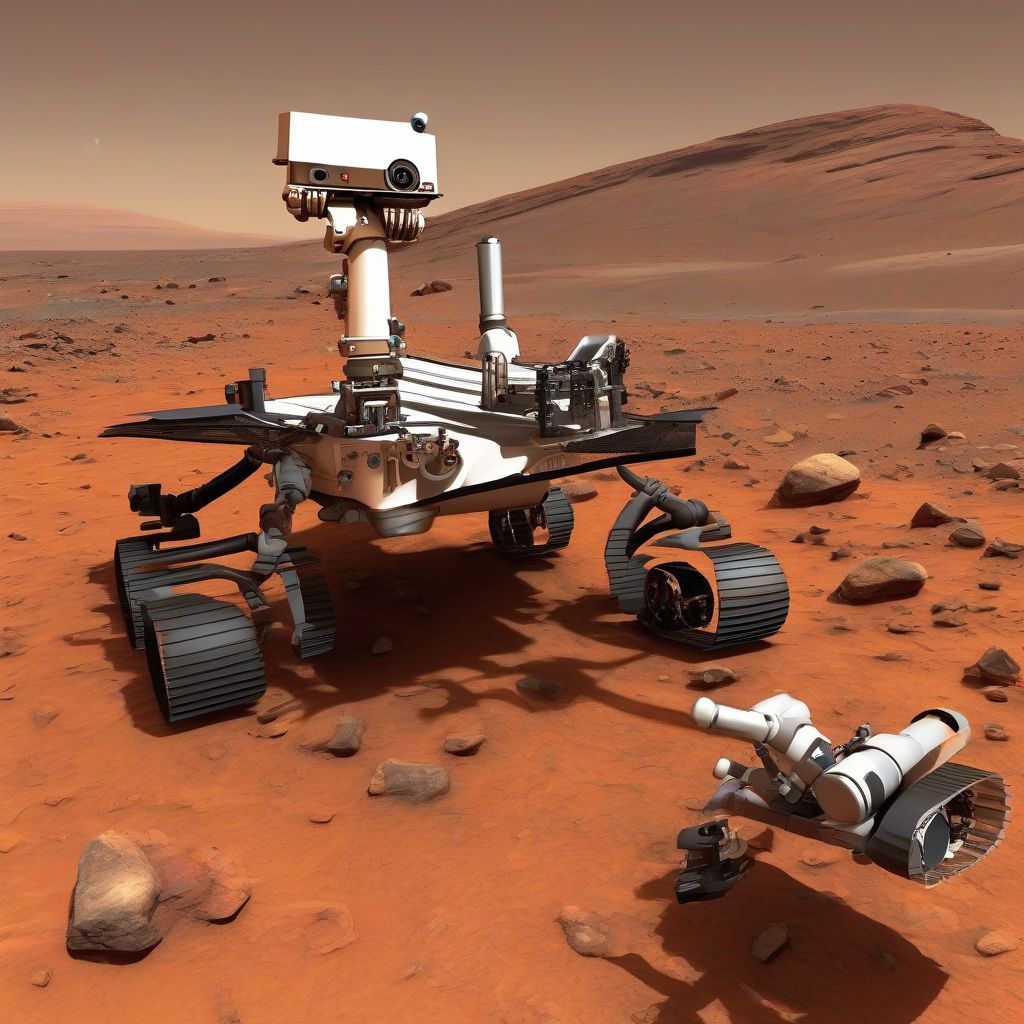Ever dreamt of discovering alien life? While we haven’t found little green men just yet, the quest to find evidence of life, past or present, on Mars is a thrilling reality thanks to our robotic emissaries: rovers. These sophisticated machines are playing a pivotal role in unraveling the mysteries of the Red Planet and answering the age-old question: are we alone?
Unveiling Martian Secrets: How Rovers Search for Life
Rovers act as our eyes and ears on Mars, traversing its rugged terrain and conducting scientific investigations that would be impossible for humans. Their primary mission in the search for life revolves around looking for biosignatures, or signs of past or present life. These can range from fossilized microbes to chemical traces in rocks and soil.
Analyzing Martian Geology: The Hunt for Biosignatures
One key way rovers contribute to the search for life is by analyzing the geological composition of Mars. They are equipped with specialized instruments like spectrometers that can identify the minerals and elements present in rocks and soil. This helps scientists understand the planet’s past environment and determine if it was ever capable of supporting life. For example, the discovery of clay minerals by the Curiosity rover suggests the presence of liquid water in the past, a crucial ingredient for life as we know it.
Investigating the Martian Atmosphere: Clues to Past Habitability
The Martian atmosphere, thin and primarily composed of carbon dioxide, holds clues to the planet’s past habitability. Rovers are equipped with sensors that can analyze the atmospheric composition and detect trace gases like methane, which could be a byproduct of microbial life. While the presence of methane doesn’t definitively prove the existence of life, it warrants further investigation and sparks exciting possibilities.
Searching for Water: The Elixir of Life
Water is fundamental to life as we know it, and rovers play a vital role in searching for evidence of past or present water on Mars. They analyze the terrain for signs of ancient riverbeds, lakes, and oceans. They also use ground-penetrating radar to detect subsurface ice deposits. The Perseverance rover, for instance, is exploring the Jezero Crater, a former lakebed, in search of signs of ancient microbial life.
Advanced Technology: The Power of Martian Rovers
The success of rovers in exploring Mars is largely due to their advanced technology. Equipped with high-resolution cameras, robotic arms, and sophisticated instruments, they can perform complex tasks remotely, controlled by scientists millions of miles away.
Mobility and Navigation: Traversing the Martian Landscape
Rovers are designed for mobility and can navigate the challenging Martian terrain, climbing hills, traversing rocky plains, and even drilling into rocks. This allows them to explore diverse locations and gather a wider range of data.
Sample Collection and Analysis: Unlocking Martian Secrets
Rovers are capable of collecting rock and soil samples, which can be analyzed onboard or cached for future return to Earth. This is a crucial aspect of the search for life, as detailed analysis of Martian samples in Earth-based laboratories can provide more definitive answers about the presence of biosignatures.
Communication and Data Transmission: Bridging the Interplanetary Gap
Rovers communicate with Earth through a network of orbiting satellites, transmitting valuable data and images back to scientists. This constant stream of information allows scientists to monitor the rovers’ progress, make adjustments to their mission plans, and analyze the data collected.
 Mars Rover Searching for Life
Mars Rover Searching for Life
The Future of Mars Exploration: Rovers and Beyond
Rovers will continue to play a crucial role in the future of Mars exploration. Future missions are being planned to collect more samples, explore new regions, and pave the way for eventual human missions. These future rovers may even include more advanced technologies, such as drones and autonomous navigation systems.
Conclusion: A Giant Leap for Mankind
The role of rovers in exploring life on Mars is undeniably significant. They have revolutionized our understanding of the Red Planet, providing invaluable insights into its past habitability and the potential for life. As we continue to explore Mars, rovers will remain our essential partners in this grand scientific endeavor, pushing the boundaries of human knowledge and bringing us closer to answering the fundamental question: are we alone in the universe? What are your thoughts on the future of Mars exploration? Share your ideas in the comments below and let’s discuss the exciting possibilities that lie ahead! You can also explore more about the latest updates on Mars exploration and the future of space exploration on our website. Learn about How robotics are advancing space exploration missions and expand your understanding of this fascinating field.



